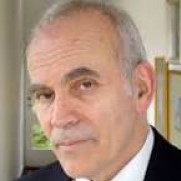George Gömöri
GEORGE GÖMÖRI (Budapest, 1934) hasbeen living in England since November 1956. After studies in Oxford, he taught at the University of California (Berkeley), and then did research at Harvard. From 1969 to 2001 he taught at the University of Cambridge. He published many books on Polish and Hungarian literature; also numerous books of poetry in Hungarian and several in English. He is a member of the Polish Academy of Arts and Sciences (Kraków). He was awarded the Janus Pannonius Prize for Translation in 2014. His recent publications include Steep Path, an anthology of modern Hungarian poetry translated with Clive Wilmer (Corvina, 2018) and Magyar „apostol” Angliában. Tanulmányok és versek Békássyról (Savaria, 2020).

